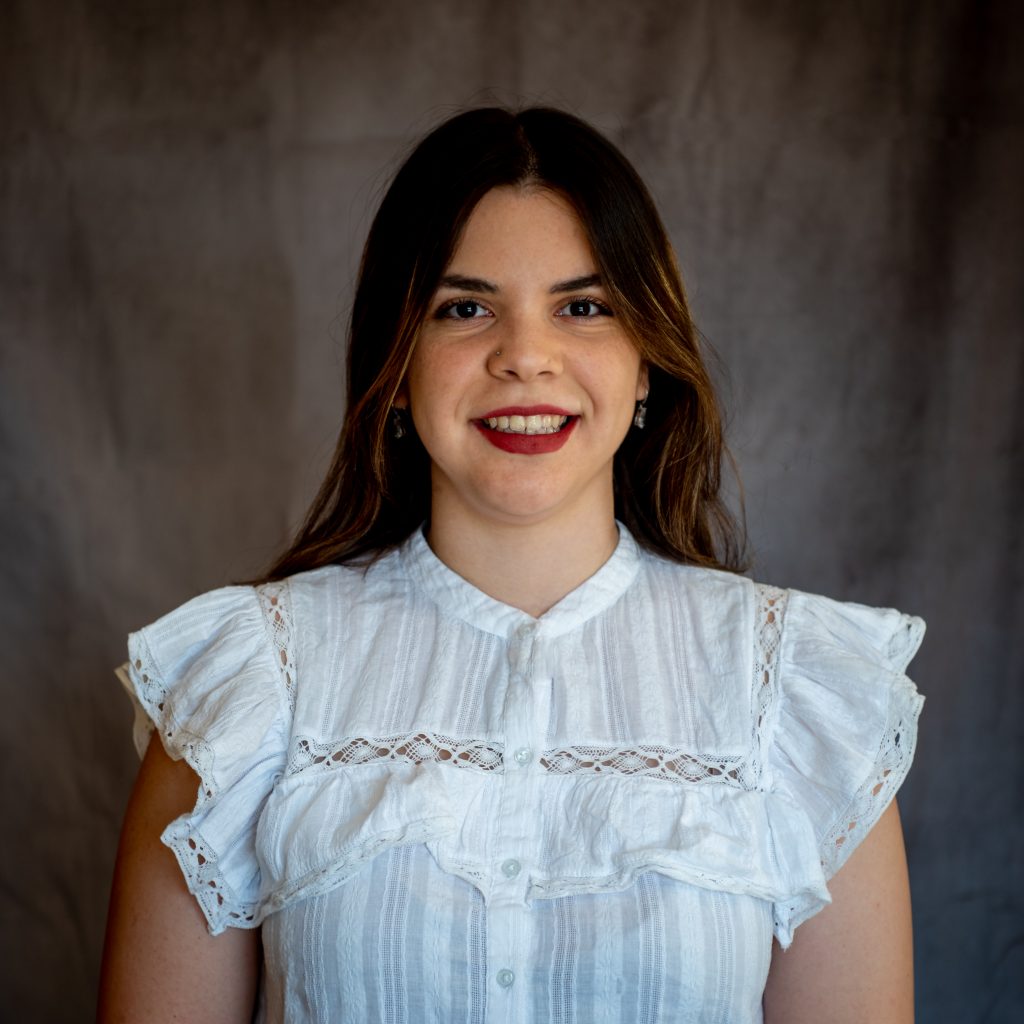31.1.2023: Elena Ppali: Our brain makes us humans
Elena Ppali: Our brain makes us humans
I was always fascinated by the human brain. The idea that a single organ controls everything that makes us human, from our thoughts and emotions to our favourite breakfast cereal, was simultaneously terrifying and exhilarating. However, I did not always want to be a scientist studying the human brain. Like a lot of people, my dream career was constantly changing. Some notable examples include becoming an astrophysicist, an archaeologist, a forensic scientist, and my mum’s absolute favourite to this day, a paediatrician with a hair salon for the mothers waiting on their children.
It was not until I came across the case of Phineas Gage while studying for my Biology A levels, that I started to think that maybe a future in neuroscience research could be what I wanted. For those of you not familiar, Phineas Cage was an American railroad construction worker who had suffered a severe brain injury after an iron rod was driven through his skull, following a railroad explosion, destroying most of his left frontal lobe. Although, he miraculously survived this injury and went on to live for another 12 years, his personality was so drastically changed that his friends no longer recognized him as Gage. He had become a completely different person.

After reading about Gage’s case, I became more interested in how the human brain works and what happens if things go wrong. Therefore, it made sense that during my undergraduate degree in Biomedical Sciences at the University of Manchester, most of my elective classes were in the field of Neuroscience and diseases of the brain. After sitting through many lectures on learning and memory, neuropharmacology, and different diseases of the central nervous system (CNS), my interest in how the human brain works shifted to neuroinflammation in the context of neurodegenerative diseases. In simpler words, I became interested in how our immune system becomes overactivated in the CNS and starts causing irreversible damage to our neurons. Thus, after finishing my bachelor’s degree, having written my final year thesis on neuroinflammation in stroke, I decided to stay at the University of Manchester and do a Master’s in Neuroscience, choosing to write my thesis on how the presence of infection changes the structure of cells in the brain, increasing the risk of developing Alzheimer’s disease or further contributing to the disease.
Having started my master’s right when the COVID-19 pandemic hit, I didn’t have the opportunity to gain as much experience carrying out experiments as I would have liked, so after returning home and working as a laboratory technician for a year, I decided to complete a second master’s degree, this time in Molecular Cell biology with Bioinnovation at University Collage Cork in Ireland. There I was given the chance to broaden my knowledge, by stepping away from neuroscience for a minute, and writing my thesis on the spike protein of SARS-CoV-2. Despite gaining valuable knowledge and experience, my work on the spike protein solidified my decision to follow a career in neurosciences. I knew that research in the field of neurodegenerative disease was where my heart truly was, which is why I applied for the MSCA Horizon 2020 Neuro-Innovation PhD programme.
My research
Working as part of the Molecular Degeneration group at the University of Eastern Finland, my research will focus on gaining more extensive knowledge and insight into the underlying pathological mechanisms contributing to Frontotemporal Dementia and Alzheimer’s disease. Under the supervision of Research Director Dr. Annakaisa Haapasalo, my project will focus on a recently identified change in the genetic sequence of the sortilin-1 receptor, a protein responsible for many processes in the brain, that has been associated with an increased risk of frontotemporal dementia and Alzheimer’s Disease, and how it microglia, the brain’s immune cells. For the research part of my project, our aims are:
- Identifying individuals carrying the sortilin-1 risk variant through Finnish Biobanks and normal pressure hydrocephalus (iNPH) patient cohorts from Kuopio University Hospital
- Generating microglial cell cultures from biological samples obtained from risk variant carriers.
- Determining of risk-carrier-derived microglial cell models compared to non-carrier models.
- Identifying potential microglial changes via in brain samples of iNPH patients carrying the risk variant
Research should be patient-oriented instead of solely focusing on generating data that have no real-life applications or offer no actual benefit to the patient or their family. Therefore, my research will also include a patient engagement part. Although not the primary focus of the project, our plan is to generate patient questionnaires that will seek to answer:
- How we can improve patient recruitment in research studies
- What expectations the patients and their family members have when taking part in a study
- What scientists and clinicians do to make sure the patient has the best possible experience.
Any data collected from this will provide novel information into disease pathogenesis that will prove to be essential for the development of early diagnostic markers and preventative and therapeutic treatments for neurodegenerative diseases.
The Neuro-Innovation Programme has the potential to change how patients are diagnosed and are being treated, guiding them towards different clinical trials and treatments based on their specific needs. This will bring us one step closer to personalized medicine and targeted recruitment to the correct clinical trials, maximizing the chances of success.
To learn more about the Neuro-Innovation research and learn more about the different researchers and their projects, take a look at the blog posts written by some of the other members of the Neuro-Innovation group, and stay tuned for more exciting blog posts to come, keeping you updated on our journey towards improving brain health!